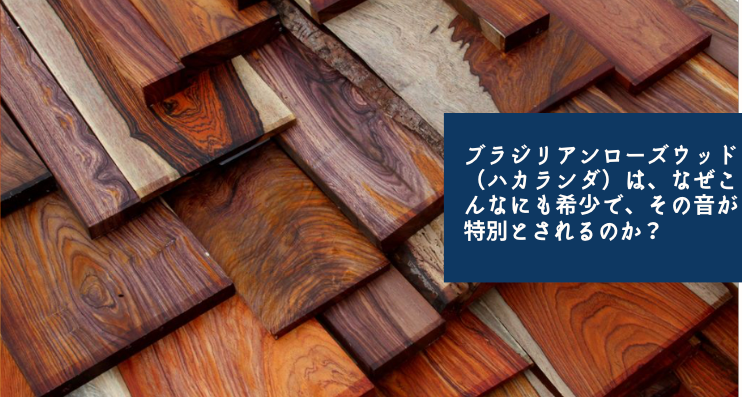
Professional evaluation of instrument value and valuation standards
Used instrument stores are a treasure trove for music lovers, but they are also a place to say goodbye to instruments.However, behind the scenes, professionals are doing the important work of determining the value of instruments and setting the appropriate price. In this article, we will take a deeper look at the appraisal process used music stores use and the factors that determine the value of instruments.
Factors that determine the value of an instrument
The value of a used musical instrument is determined by many factors, not just the type and age of the instrument.
2. Brand and model number: Obviously, famous brands and popular models tend to fetch high prices. However, popular models are often overstocked at music stores, and the second-hand market is often saturated, so you may be wary of them when purchasing.
For example, when the TV drama "Bocchi the Rock!" became a big hit, the Les Paul Custom used by the main character sold in large quantities, becoming a very popular model regardless of manufacturer.
However, when the boom died down, this model was sold in large quantities, resulting in the popular model suddenly becoming saturated and unsold.
3. Age: Vintage instruments can be expensive due to their rarity.
Sound quality: Good sound is an important evaluation criterion, especially for stringed and acoustic instruments.
4. Market demand: Prices fluctuate according to trends and demand at any given time.
In the market, there are times to buy and sell, just like in the stock market, in any genre. It's a world where a single statement from a top artist can cause a sudden rise in value.
If you want to sell for as much as possible, it's a good idea to keep these background factors in mind.
5. Historical value: Historical background, such as models used by famous musicians, also affects the value.
Recently, John Mayer became a hot topic when he was seen holding a TOKAI SS series in an artist photo or something.
Professional Appraisal Process
Professionals at used musical instrument stores will assess the value of an instrument by taking all of these factors into consideration. Most musical instrument stores will assess an instrument using the following process:
1. Appearance check: Check carefully for scratches and wear.
2. Functionality test: Check whether the instrument works properly and what the sound quality is.
3. Market value analysis: The fair price is calculated based on the market price of similar instruments.
4. Demand forecasting: Predict the demand for the instrument.
In addition, our store will also reflect the sound quality in the purchase price, so if the sound is good, we will buy it for a higher price than the general used market, but if we feel that the sound is not so good, no matter how rare the model, we will buy it for a lower price.
Because we can't recommend it to our customers.
Our store also posts demo videos, so even if we set a high price based on rarity alone, customers will be able to see whether the sound is good or bad.
And because we only sell online, we don't want you to be disappointed when you receive the instrument at your home and actually play it.
Of course, likes and dislikes of sound are individual differences, but if there is something that I feel, in my sole discretion, is "not recommended for customers," I will sell it at an appropriate price, so I will be strict with the purchase price.
However, on the other hand, even if a model was a cheap entry-level model when you first purchased it, if you have played it for many years and it has developed a deep sound, we will buy it from you at a high price!
The expertise behind the appraisal
Appraisal of used musical instruments requires a wide range of knowledge and experience. Staff at used musical instrument specialty stores are well versed in the history and structure of musical instruments, as well as market trends.
For example, when appraising a vintage guitar, it is important to determine the year of manufacture.
The year of manufacture is identified based on the serial number, the parts used, the paint characteristics, etc., and authenticity is determined by comparing them with the characteristics of that era.
Furthermore, evaluating the sound quality of musical instruments requires advanced musical knowledge and experience. In particular, with acoustic instruments, the quality of the wood, the maturity of the wood, the manufacturing technique, and other factors have a significant impact on the sound quality, so the ability to judge these factors comprehensively is required.
Conclusion
This shows the important role of second-hand musical instrument stores in passing on the feelings of the previous owner to the next owner of the instrument.
Behind the simple phrase "buying and selling musical instruments" lies the deep knowledge and experience of professionals, as well as a love for musical instruments. To put it simply, appraisers do not simply determine the price of instruments, but also play an important role in weaving the history of the instruments and supporting the creation of new music.
When buying or selling a used instrument, it is important to take advantage of the knowledge of these professionals to understand the true value of the instrument.
By doing so, we will be able to experience wonderful encounters with instruments and memorable farewells.
We also offer free appraisals!
Want to find out how much your instrument is worth?
Please give it a try here!
⬇️Click



